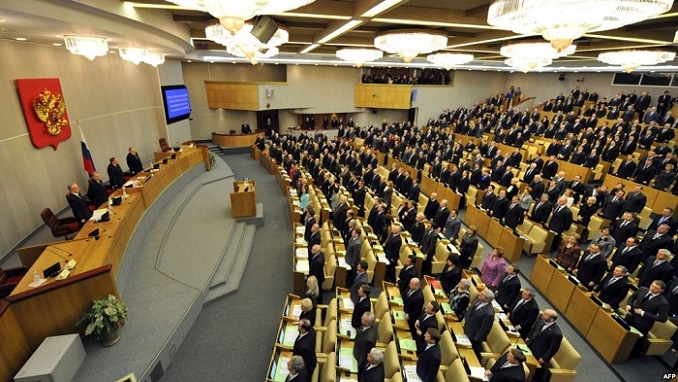Russia’s State Duma, the lower chamber of parliament, has adopted controversial legislation on Tuesday that would expand government control over the internet, RBC reports.
A total of 307 lawmakers voted in favor of the law, while only 68 voted against it. In the coming days, it will likely be approved by the upper house of parliament — the Federation Council — and signed into law by Russian President Vladimir Putin. It will then come into force on November 1, 2019.
The bill raised fears of widespread censorship. It requires internet providers to install equipment to route Russian internet traffic through servers in the country. That would increase the power of state agencies to control information while users would find it harder to circumvent government restrictions, and the quality of the connection may suffer.
Proponents of the bill say it is a defense measure in case the United States or other hostile powers cut off the internet for Russia.
“If we see that others have the technical capabilities to carry out attacks on the Russian internet then we must have the technical capability to resist those attacks,” Andrei Klishas, one of the authors of the law, told DW ahead of the vote.
Klishas, a member of the Federation Council, makes no secret of where the authors of the law think the attacks on “Runet” might come from: “We have no doubt that the United States is technically able to turn off the internet wherever they deem it necessary to do so.”
Aleksandr Isavnin, an activist with the Russian internet freedom project RosKomSvoboda ,said the law simply follows on from the government’s increasing attempts to regulate the internet.
“It continues to increase the influence of the government on the internet and the powers of the intelligence agencies to decide what content is accessible online,” he said.
The bill sparked large protests after its first reading in March. Thousands of people took to the streets in the Russian capital, Moscow, chanting “Keep your hands off the internet!” and railing against the creation of what many called a new Iron Curtain, or a “Great Russian Firewall” — a reference to China’s internet censorship measures.












